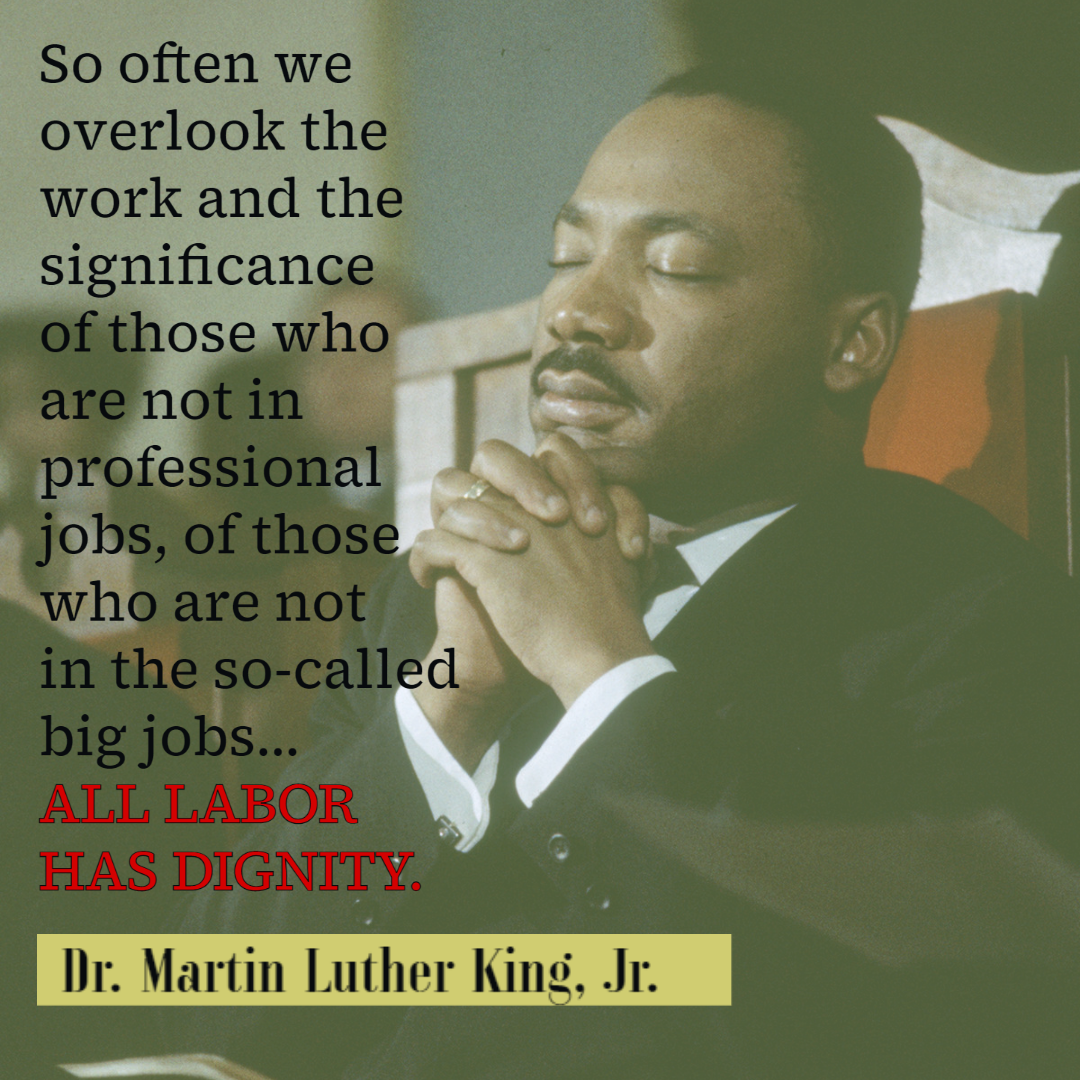All Labor Has Dignity: Dr. Martin Luther King, Jr.
"You are doing many things here in this struggle. You are demanding that this city will respect the dignity of labor.
So often we overlook the work and the significance of those who are not in professional jobs, of those who are not in the so-called big jobs. But let me say to you tonight, that whenever you are engaged in work that serves humanity and is for the building of humanity, it has dignity, and it has worth. One day our society must come to see this. One day our society will come to respect the sanitation worker if it is to survive, for the person who picks up our garbage, in the final analysis, is as significant as the physician, for if he doesn’t do his job, diseases are rampant.
All labor has dignity.
...
You are reminding the nation that it is a crime for people to live in this rich nation and receive starvation wages.
…
Do you know that most of the poor people in our country are working every day? And they are making wages so low that they cannot begin to function in the mainstream of the economic life of our nation.
These are facts which must be seen, and it is criminal to have people working on a full-time basis and a full-time job getting part-time income.
You are here tonight to demand that Memphis will do something about the conditions that our brothers face as they work day in and day out for the well-being of the total community. You are here to demand that Memphis will see the poor.”
- Dr. Martin Luther King, Jr.
These excerpts are from a speech Dr. King gave in Memphis on March 18, 1968. He was there working in support of the Memphis sanitation workers’ strike. Two weeks later, while continuing his work in support of the labor strike, he was assassinated.
I have nothing profound to say about Dr. King that has not been said before. Tonight, on Labor Day, I simply want to offer an important reminder.
Dr. King's activism was not solely focused on civil rights and racial segregation. His organizing efforts did not end with the passage of the Civil Rights Act.
Dr. King was a labor advocate, an anti-war leader, and a man who sought to restructure our economic system in an effort to eliminate poverty and give the working class a fair deal.
Dr. King understood the undeniable power that everyday people have, if they are simply willing to harness it.
In a 1965 speech, he reflected on the impact the labor movement has had our entire nation-- not just those who are union members:
"At the turn of the century women earned approximately ten cents an hour, and men were fortunate to receive twenty cents an hour. The average work week was sixty to seventy hours. During the thirties, wages were a secondary issue; to have a job at all was the difference between the agony of starvation and a flicker of life.
The nation, now so vigorous, reeled and tottered almost to total collapse. The labor movement was the principal force that transformed misery and despair into hope and progress.
Out of its bold struggles, economic and social reform gave birth to unemployment insurance, old age pensions, government relief for the destitute, and above all new wage levels that meant not mere survival, but a tolerable life.
The captains of industry did not lead this transformation; they resisted it until they were overcome. When in the thirties the wave of union organization crested over our nation, it carried to secure shores not only itself but the whole society."
Tonight, I hope you will reflect with me on the impact labor organizers-- everyday people harnessing their power -- have had on your family's lives.


